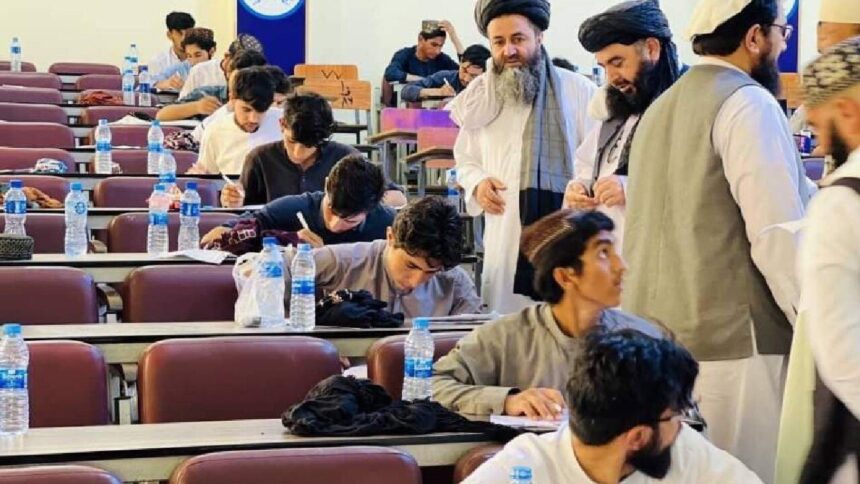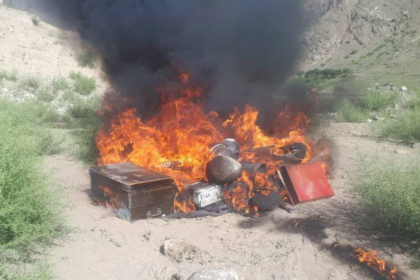RASC News Agency: While the Taliban regime boasts of expanding its question bank for Afghanistan’s national university entrance exam (Kankor), the lived reality for much of the population tells a vastly different story one of systematic exclusion, deepening discrimination, and educational apartheid. For the fourth consecutive year, Afghanistani girls remain barred from accessing higher education or even sitting for the Kankor exam, a deliberate policy that has darkened the future of thousands of young female students across the country. Abdul Baqi Haqqani, head of the Taliban’s National Examination Authority, recently announced that 40,000 new questions have been added to the Kankor database over the past year. He also claimed that questions are now drafted directly in both Pashto and Persian, rather than being translated from Persian into Pashto. However, testimonies from this year’s exam participants, particularly those from provinces with predominantly non-Pashtun populations such as Badakhshan, Daikundi, Bamyan, Ghor, Herat, Panjshir, Parwan, and Kapisa reveal a starkly different reality. Many candidates complained that the majority of exam questions were presented exclusively in Pashto, a language they are not proficient in.
Participants from these regions reported that after years of being taught entirely in Persian in public schools, they were shocked to discover that their Kankor exam materials were not in the language of their instruction. Many said they were unable to comprehend the questions, drastically lowering their chances of admission. Several candidates asserted that the linguistic bias was not accidental but an intentional strategy to marginalize and exclude non-Pashtun youth from higher education. Simultaneously, the Taliban’s ongoing exclusion of girls from the Kankor particularly from highly sought-after disciplines like medicine continues unabated. This policy, which brazenly violates fundamental human rights, has inflicted irreversible harm on Afghanistan’s intellectual and professional future. Young women who spent years preparing for university now face despair, isolation, and a collapsing sense of purpose.
While Taliban authorities publicize their supposed educational achievements claiming to have administered over 70 group exams last year and expanded testing systems the deliberate sidelining of candidates based on gender and language has only exacerbated the structural fractures within Afghanistan’s already fragile education sector. For many young Afghanistani students, especially Persian-speaking minorities and girls, the Kankor is no longer a gateway to opportunity, but a bleak reminder of institutional discrimination and authoritarian control. What is unfolding is not merely a discriminatory exam it is part of a larger, ideologically driven campaign by the Taliban to erase diversity from the national fabric, suppress women’s intellectual potential, and consolidate power by privileging one language, one ethnicity, and one worldview.






